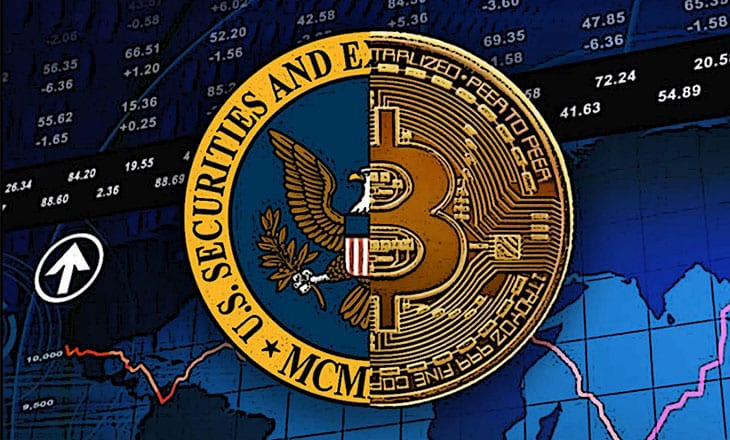Late evening shocker on the financial airways – The SEC rejects the Bitwise Bitcoin ETF proposal, well before Monday’s deadline decision date. Reporters on the late shift suddenly went into high gear, filling nearly every news channel with the shocking news. Matt Hougan, Bitwise’s Head of Research, had just told everyone that, “We’re closer than we’ve ever been”, but it was not to be. The majority of the analyst community had expected this verdict, but for it to be delivered on Monday.
The publicist for the SEC must have convinced Jay Clayton, its chairman, and his management team that it would be wise to announce their decision early and after normal business hours. Corporations typically use this tactic when they have bad news to convey to the market, but it is usually employed on a late Friday evening, when everyone is focused on anything but the workday. In any event, the Bitcoin market took the news in stride. It had rallied to $8,600 earlier, but now resides just below $8,500.
The actual order from the commission, as reported by Coindesk, read:
The Commission is disapproving this proposed rule change because, as discussed below, NYSE Arca has not met its burden under the Exchange Act and the Commission’s Rules of Practice to demonstrate that its proposal is consistent with the requirements of Exchange Act 6(b)(5), and, in particular, the requirement that the rules of a national securities exchange be ‘designed to prevent fraudulent and manipulative acts and practices’.
With this action, the Bitwise ETF application has been tossed into the SEC’s trash heap of at least a dozen other attempts to persuade the commission to allow the general public an easy and secure access to the Bitcoin market. The same reasons continue to be cited with each go around, but Clayton and his band of regulators, with the exception of Hester Peirce, a commissioner, affectionately known as “Crypto Mom”, who had chastised the agency in the past for its intransigence, do not “feel comfortable”.
During the nine months or so leading up to this announcement, Bitwise and its partner, NYSE Arca, have had several discussions with the SEC, supposedly working through each of the agency’s concerns. Per Coindesk:
Bitwise tried to reassure the regulator that issues relating to market manipulation and fraudulent activity could be addressed, publishing a number of reports on what it saw as the “real” bitcoin market and showing that market activity correlated tightly with regulated bitcoin futures markets.
According to MarketWatch, a disconsolate Matt Hougan responded:
We deeply appreciate the SEC’s careful review. The detailed feedback they have provided in the order provides critical context and a clear pathway for ETF applicants to continue moving forward on efforts to list a bitcoin ETF. We look forward to continuing to productively engage with the SEC to resolve their remaining concerns, and intend to re-file as soon as appropriate.
Hopefully, Bitwise can move forward to address the SEC’s remaining concerns, but the agency may not be happy until nearly every crypto exchange is regulated. Further down in its order, Forbes notes that it claims that the applicants had not “established that it has, in fact, identified the ‘real’ bitcoin market, or that the ‘real’ bitcoin market is isolated from the fraudulent and manipulative activity”. Bitwise had “asserted that 95% of the bitcoin spot market consists of fake and non-economic activity”.
Industry reaction was muted, but most analysts noted that the lack of an ETF approval had done little to sway Bitcoin values. BTC had rallied over 5% during the day, due to the Fed’s announced policy of expanding its balance sheet. The SEC’s rejection barely caused a ripple in market activity. Bitcoin’s year-to-date return is roughly 132%.
And so we are left with one application still standing in the SEC’s crosshairs. Wilshire Phoenix and its partner, once again NYSE Arca, will now proceed down a clearer path in their deliberations with the SEC. It is doubtful, however, if the SEC will ever be comfortable with cryptocurrencies and their respective market activity, except in trusts that are limited only to “accredited investors”, as with the Grayscale or VanEck Bitcoin Trusts.
